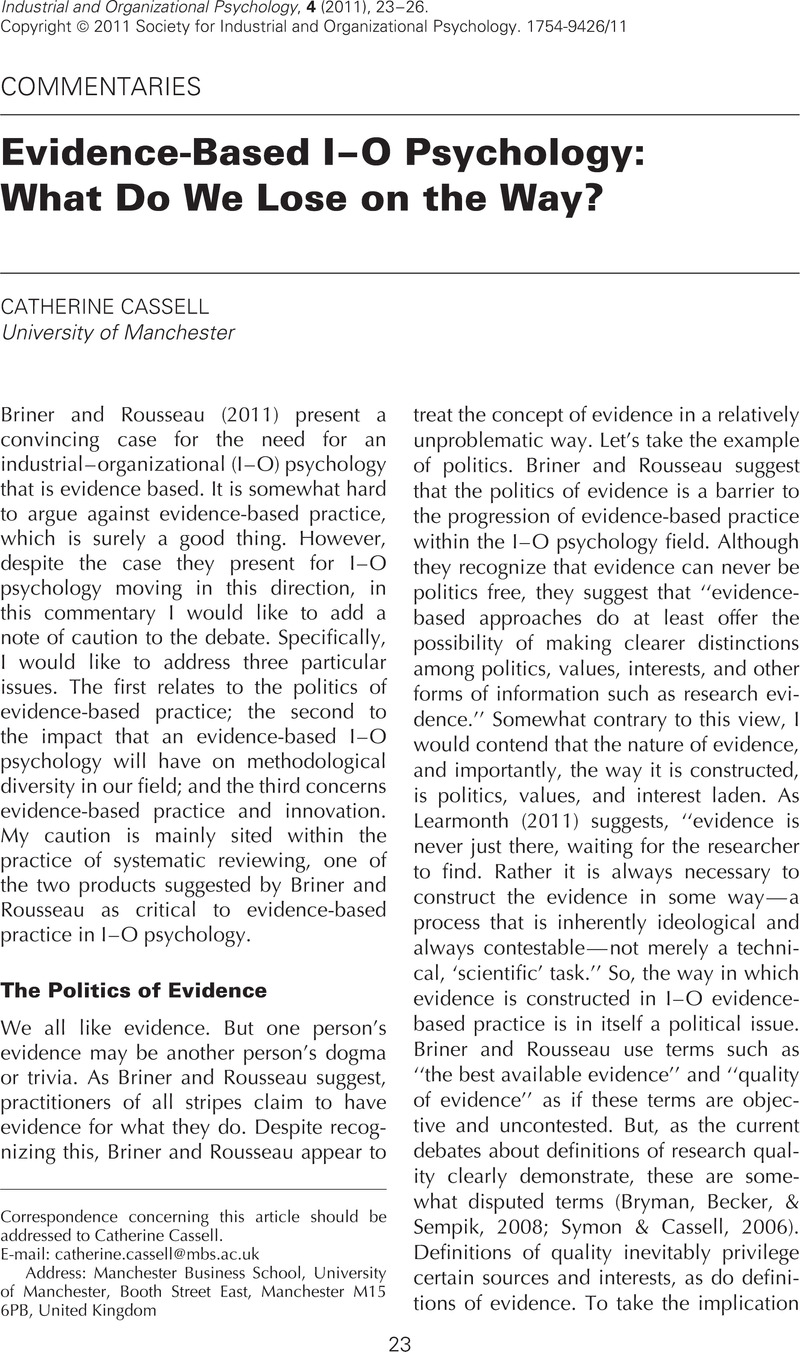Crossref Citations
This article has been cited by the following publications. This list is generated based on data provided by Crossref.
Briner, Rob B.
and
Rousseau, Denise M.
2011.
Evidence-Based I–O Psychology: Not There Yet but Now a Little Nearer?.
Industrial and Organizational Psychology,
Vol. 4,
Issue. 1,
p.
76.
Morrell, Kevin
and
Learmonth, Mark
2015.
Against Evidence-Based Management, for Management Learning.
Academy of Management Learning & Education,
Vol. 14,
Issue. 4,
p.
520.
Grossman, Rebecca
Thayer, Amanda L.
Shuffler, Marissa L.
Burke, C. Shawn
and
Salas, Eduardo
2015.
Critical social thinking.
Organizational Psychology Review,
Vol. 5,
Issue. 2,
p.
99.
Cassell, Catherine
2016.
European qualitative research: A celebration of diversity and a cautionary tale.
European Management Journal,
Vol. 34,
Issue. 5,
p.
453.
Garbuio, Massimo
and
Lovallo, Dan
2017.
Does organizational politics kill company growth?.
Review of International Business and Strategy,
Vol. 27,
Issue. 4,
p.
410.
Isaeva, Neve
Gruenewald, Kira
and
Saunders, Mark N. K.
2020.
Trust theory and customer services research: theoretical review and synthesis.
The Service Industries Journal,
Vol. 40,
Issue. 15-16,
p.
1031.
Greasley, Kay
and
Thomas, Pete
2020.
HR analytics: The onto‐epistemology and politics of metricised HRM.
Human Resource Management Journal,
Vol. 30,
Issue. 4,
p.
494.
Rojon, Céline
Okupe, Adun
and
McDowall, Almuth
2021.
Utilization and development of systematic reviews in management research: What do we know and where do we go from here?.
International Journal of Management Reviews,
Vol. 23,
Issue. 2,
p.
191.





